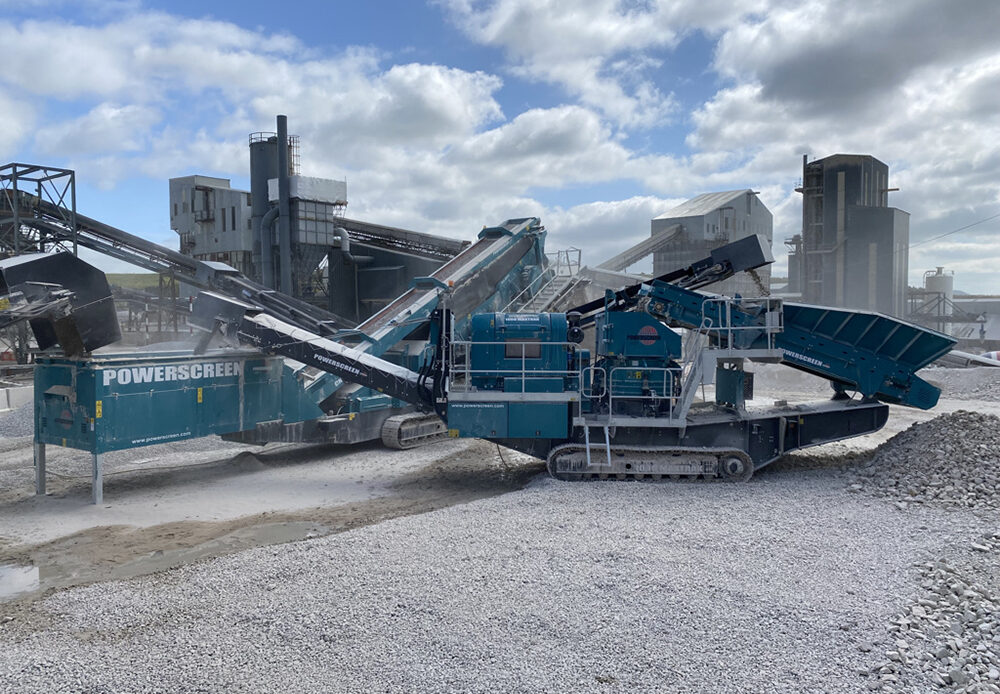In the realm of industrial operations, rock crushing stands out as a fundamental process, pivotal across sectors like construction, mining, and aggregate production. The challenge, however, lies in navigating the twin objectives of operational efficiency and environmental sustainability. This guide embarks on a detailed how to choose a rock crusher, aiming to equip operators with the knowledge to make informed decisions that ensure their projects are both efficient and sustainable.
Introduction to Rock Crushing Dynamics
Grasping the essence of rock crushing and its critical role in various applications sets the stage for understanding the importance of strategic equipment selection.
The Significance of Rock Crushing
- For Construction: It supplies vital materials for infrastructure, edifices, and roadways.
- In Mining: It aids in extracting precious minerals and metals from the earth.
- For Aggregate Production: It generates components for concrete, asphalt, and more, underpinning construction projects.
Strategic Selection of a Rock Crusher
The cornerstone of achieving efficiency and sustainability in rock crushing lies in the judicious choice of equipment. Key considerations include:
Material Characteristics
Different crushers are engineered to handle specific material types and hardness levels. Recognizing the nature of the material is crucial in selecting the appropriate crusher.
Output Specifications
The desired size and form of the output material directly influence the selection of the crusher, ensuring it meets the project’s requirements efficiently.
Operational Capacity
Aligning the crusher’s capacity with the project’s scale is vital to maintain efficiency and avoid overuse of resources.
Installation and Mobility
The choice between mobile and stationary crushers hinges on the project’s logistical needs and spatial constraints.
Sustainability Factors
In an era where environmental impact is a paramount concern, opting for crushers that offer reduced emissions and energy consumption is essential.
Crusher Varieties and Their Applications
Understanding the different types of rock crushers and their suited applications is key to making an informed choice:
Jaw Crushers
Best for primary crushing of hard rocks, these crushers are known for their robust construction and straightforward operation.
Cone Crushers
Tailored for secondary and tertiary crushing stages, cone crushers excel in processing medium to hard materials, delivering precise output sizes.
Impact Crushers
These crushers are versatile, handling soft to medium-hard materials and excel in producing quality aggregates with a specific shape.
Gyratory Crushers
Ideal for high-capacity primary crushing, gyratory crushers are efficient in processing hard materials with large input sizes but require significant space.
Enhancing Operational Efficiency and Sustainability
Achieving high efficiency and sustainability involves more than just equipment selection. Consider these strategies:
Prioritize Regular Maintenance
Keeping equipment in peak condition through regular maintenance not only enhances efficiency but also extends its lifespan.
Optimize for Energy Efficiency
Choosing energy-efficient models and optimizing operation parameters can significantly lower energy consumption.
Leverage Automation
Incorporating automation and intelligent technologies can refine control over the crushing process, reducing waste and improving efficiency.
Adopt Green Practices
Considering electric-powered options and recycling initiatives can minimize environmental impact and foster sustainability.
Making the Wise Choice in Rock Crusher Selection
The process of selecting a rock crusher should be a deliberate one, informed by a thorough evaluation of your project’s specific needs:
- Evaluate Material Properties: Identify the characteristics of the materials to be processed.
- Outline Output Goals: Specify the required output size and shape.
- Assess Capacity Needs: Determine the necessary production capacity to select a suitable crusher.
- Consider Installation Requirements: Decide between a mobile or stationary crusher based on operational flexibility and space constraints.
- Prioritize Environmental Impact: Choose options that align with sustainability goals, focusing on low emissions and energy consumption.
Wrapping Up
Selecting the right rock crusher is a decision that significantly impacts the efficiency, sustainability, and economic viability of rock crushing operations. By carefully considering the types of materials, desired output, and environmental implications, operators can make choices that not only fulfill their immediate operational needs but also contribute to the long-term sustainability of their projects. This holistic approach to crusher selection, combined with a commitment to best practices in operation and maintenance, sets the foundation for success in the evolving landscape of industrial operations.

